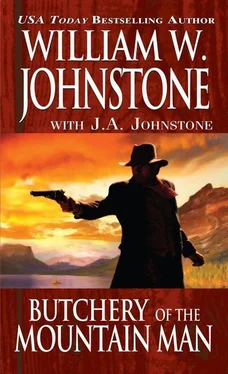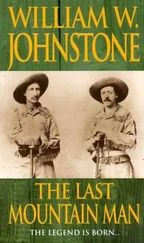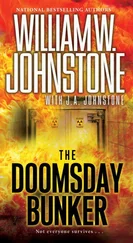Warning
Thieves, con agents, and gamblers ride the steamboats. Many of these undesirable citizens hang around levees, wharves, hotels, and taverns in the river towns. Travelers are advised to buy bank drafts. Some prefer letters of credit from their own bank. If you need to carry a large sum of money, wear a money belt. Avoid games of chance on the riverboats.
Wooding
A passenger can reduce his fare by wooding on a trip. However, the job of cutting and carrying wood is a hard one, and should only be attempted by those used to hard work.
St. Louis
The Nellie Peck approached the riverbank, then just before it got there, reversed the paddle, causing the water to froth at the stern. The boat glided in, until the bow bumped against the cobblestone levee. A crewman on the front of the boat tossed out a thick hawser, and someone on the bank made the boat fast.
The riverfront was alive with activity, not only the scores of other boats that were tied up, but the amount of traffic ashore: carriages, buggies, surreys, buckboards, coaches, and wagons of all sizes. There was noise from the steam relief valves of the boats, some of the venting sounding almost like cannon fire. Men were shouting back and forth to each other, and the air was rent with the clops of steel-shoed horses and mules on the paved streets.
Claire had never seen anything like this in her life, and she stood at the railing of the boat with her hand to her chest.
“Are you all right?” John asked.
“I . . . I have never seen so many people,” Claire said.
“I should think not. If you put every person you had ever seen in your whole life, together, they wouldn’t make but a fraction of what you are seeing right here, right now, just on the riverfront.”
“How can so many people live so close together? Don’t they step on each other’s feet?”
John laughed. “I imagine they do,” he said.
Claire reached out to grab John’s arm. “John, do not leave the baby and me alone here. I am frightened by so many.”
“Don’t worry, Claire. I have no intention of leaving you alone.”
“Mr. Jackson,” the boat’s purser said, approaching them then. “I have secured a wagon for your cargo.”
“Thank you, Mr. Adams,” John said.
John and Claire stood by, watching as bale after bale of beaver and marten pelts were loaded onto the wagon. Then, leaving the boat, John secured a cab, and they followed the wagonload of furs as it made its way through the city to the St. Louis Fur Exchange, on Lafayette Street.
Claire was in awe of the huge buildings, many of them five and six stories high. They passed by the Christian Staehlin’s Phoenix Brewery, a huge building with towering smokestacks.
“Why don’t I just let you and Kirby out here?” John suggested. “I’ll come back for you later.”
“No!” Claire said, grabbing his arm even tighter.
John laughed quietly, then kissed her on the forehead. “Don’t worry, my sweet,” he said. “I’m just teasing you. I have no intention of letting you go.”
When they reached the fur exchange, John let the cab go, then he, Claire, and Kirby went inside to make arrangements to sell the pelts.
CHAPTER TWENTY-ONE
“I must say, Mr. Jackson,” O. D. Clayton said a few minutes later as he examined the pelts. “These are in remarkable condition, much better condition than the ones I normally get. I think that’s because the fur traders don’t always take that good of care of them.”
“How much are you willing to pay for them?”
“Five dollars apiece for the marten, three dollars for the beaver.”
“Will you take all of them?” John asked.
“How many do you have?”
“I have six hundred beaver, and three hundred twenty-five marten.”
O. D. Clayton did some figuring, then looked up. “That comes to three thousand, four hundred, and twenty-five dollars,” he said.
“Three thousand, four hundred, and twenty-five?” A huge smile spread across John’s face. “Claire!” he said, embracing her. “We’re rich!”
“Do you want it in cash, or by check?” Clayton asked.
“I expect I’d better take it by cash,” John said. “There aren’t a lot of banks near my cabin.”
Clayton chuckled. “No, I don’t expect there would be,” he said. “Is paper money all right?”
“Yes, where I do business, they take paper money.”
“I’m never sure. Paper money is as good as gold all over St. Louis. But I’ve heard that there are some places where they won’t take it.”
Clayton counted out the money, and John, with a big smile, put it in his pocket.
“Now,” John said. “Suppose you tell me where we can find an elegant place to eat in St. Louis.”
“You might try the Delmonico on Olive,” Clayton told him. “That’s just three blocks over. Truth is, I’ve never been there, but I’ve heard it was an elegant place.”
With his money in his pocket, John, Claire, and baby Kirby walked the three blocks to Delmonico. Smiling, they stepped into the restaurant.
“I’m sorry, but you aren’t welcome here,” a waiter said, stopping them just inside the door.
“Oh, I’m sorry,” John said, touching his buckskin shirt. “I wasn’t aware there was a dress code.”
“No, sir, you are fine,” the waiter said. “You can come in. It’s the squaw and papoose who can’t. They will have to wait outside.”
John reached up and grabbed the man’s collar with his left hand, then he twisted it so that it was choking him.
“What did you say?” he asked. Though the expression on his face was fearsome, and he did have a tight grip of the man’s collar, the question was spoken quietly, and coldly, the more frightening because of that. “Do you seriously think I’m going to leave my wife and child outside while I come in?”
“I . . . uh . . . the owner has a policy that only whites can come in. I’m sorry, sir, there’s nothing I can do about it. No colored, no Indians, and no Chinamen.”
“John, please, let’s go,” Claire said.
“Mister, I don’t know who you think you are, but we don’t want squaw men comin’ in here,” a man sitting at the first table said. He pulled a pistol and was about to point it at John, but before he could, John pushed the waiter away, drew his knife, and threw it. It pinned the man’s sleeve to the table, and he dropped the pistol. John stepped over quickly, and picked up the pistol.
The man who had drawn the gun reached over with his left hand to pull the knife free.
“Leave the knife where it is,” John ordered. “I’ll remove it when I decide to.” He pulled the cylinder from the man’s pistol, dumped all the shells onto the floor, and kicked them away. Only then did he recover his knife, unpinning the man’s jacket sleeve.
Then, doing it so quickly and smoothly that the would-be gunman had no time to react, John sliced through the man’s septum. It started bleeding profusely.
“Ahhh!!” the man shouted out in pain, sticking his hand to his nose. “You cut my nose!”
“Yes, I did, didn’t I? Well, that’s just a reminder to make you think twice next time you want to stick your nose into somebody else’s business,” John said.
He used the man’s shirtsleeve to wipe the blood away from his knife.
“If you good folks don’t mind, I’ll just find another place to spend my money,” he said. “Let’s go, Claire.”
They started toward the door, but just before they left, John turned to address the others.
“By the way, if anyone so much as sticks a head out the door in the next minute, I’ll shoot you dead.”
Not one word was spoken by anyone in the restaurant, but all stared at him with expressions that ranged from curiosity, to shock, to outright fear.
Читать дальше












